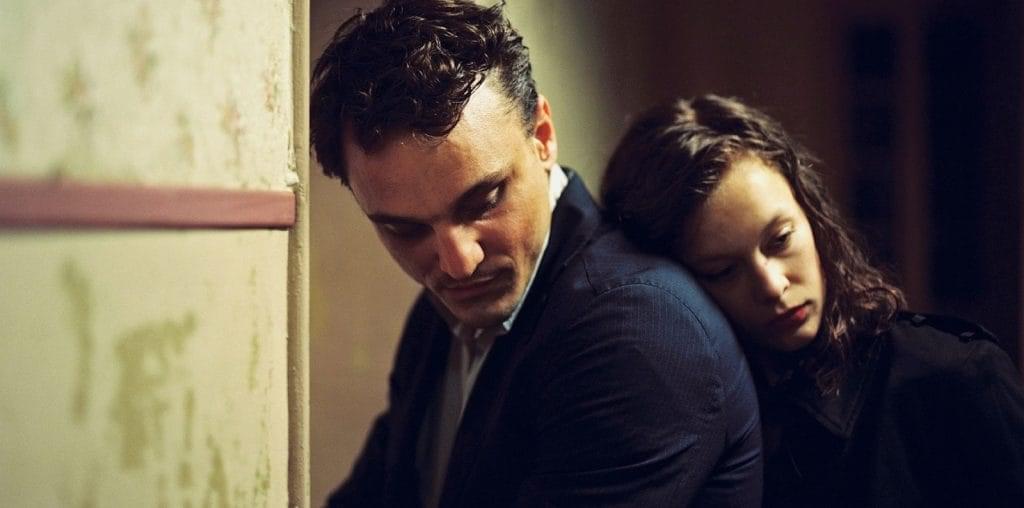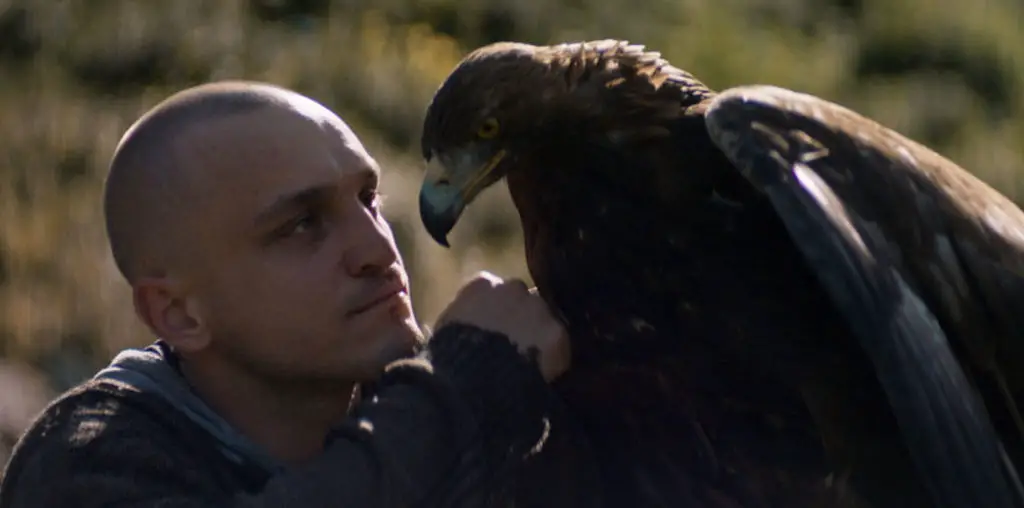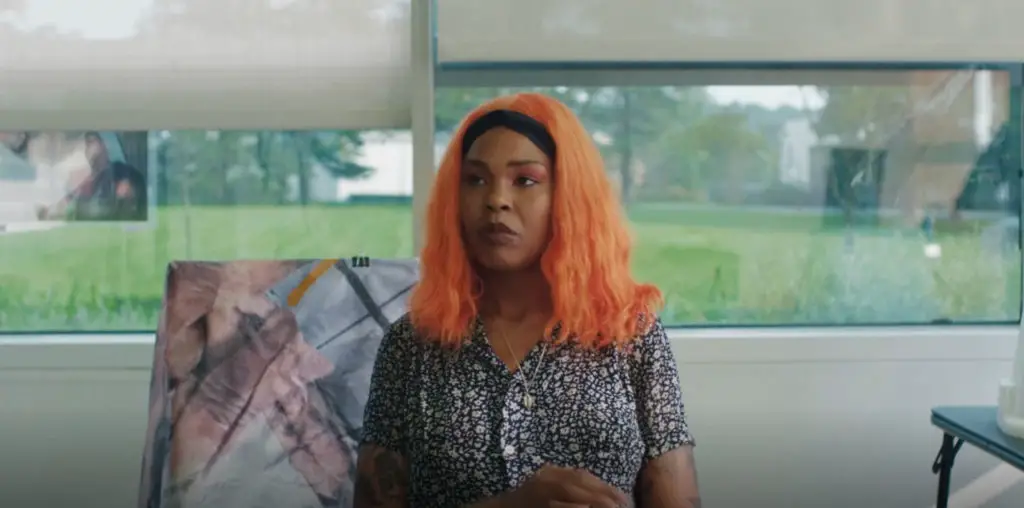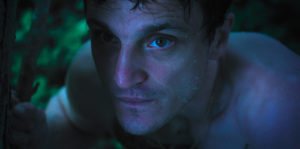
In his startling feature debut, Disco Boy, filmmaker Giacomo Abbruzzese boldly concocts a crazed yet deliberate amalgamation of genres and themes. Mysticism collides with realism, verité morphs into psychedelia; an exploration of home, belonging, and identity becomes a mediation on trauma, grief, and rediscovery – sometimes, it’s everything all at once. An ambitious, impassioned mind-f**k of a film from a director to watch, Disco Boy may not fully cohere in the end, but boy does it leave an impression.
Belorussian Alexei (Franz Rogowski) embarks on a treacherous journey. He travels by bus over the border to Poland, hitchhikes, crosses cold rivers by night, tragically loses a friend, and escapes naked from authorities until he arrives in Paris, disheveled but determined. Despite having no papers, he joins the Foreign Legion, which – barring he passes all the vigorous training and consequent assignments – promises a residence permit and French citizenship in five years.
In the meantime, in the Niger Delta, Jomo (Morr Ndiaye) harbors dreams of being a nightclub dancer, the titular “disco boy.” He’s the leader of MEND – the Movement for the Emancipation of Niger Delta, who’s introduced scaring off a comical Vice reporter (a nice dig at the pseudo-news organization there). In an effort to protect his tribe against the encroaching oil companies, Jomo and his gang kidnap a group of French nationals. A team of legionnaires, led by Alexei, soon arrives. Fate brings the two men face to face.
Alexei comes back to Paris, traumatized by his journey. The pounding club scene doesn’t alleviate his sorrows; in fact, it does the opposite, prompting our hero to burrow deeper into a rabbit hole that may or may not be the product of his disturbed mind. Has he sacrificed whatever remnant of an identity he had in his desperate pursuit of a new one? Isn’t he, in the end, Jomo’s kindred spirit?
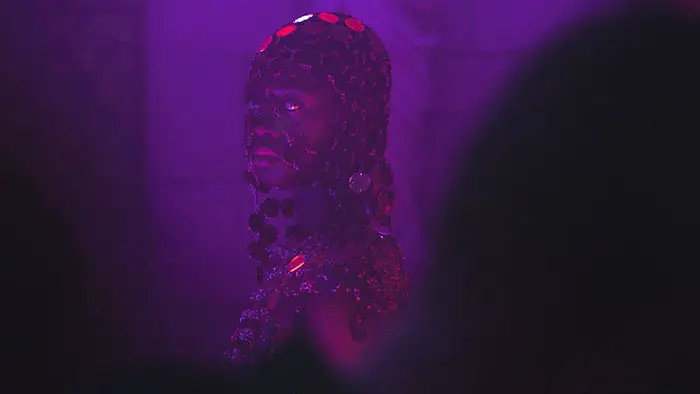
“…to protect his tribe against the encroaching oil companies, Jomo and his gang kidnap a group of French nationals…”
Nary a second of this tight 90-minute narrative is wasted. Instead of inter-cutting between Alexei’s story and Jomo’s plight, Abbruzzese opts to tell their stories in a linear fashion so that the first half an hour is dedicated to the former, the next to the latter, and the last thirty minutes are a trippy reflection on, and meshing of, the two plots. The writer-director’s audacity cannot be faulted – his grasp on pacing and style/thematic consistency may need a little tightening, but he takes big risks worthy of admiration.
Abbruzzese is also wise to mute the film’s most powerful moments: Alexei’s call to his dead friend’s mom is left to the viewer’s imagination; Jomo’s tribe’s psychedelic ritual sequence requires no explanation beyond the snippet shown; Alexei’s silent burial of a body is heartbreaking with not a word pronounced. House and techno maestro Vitalic’s music adds tremendously to the narrative, imbuing it with intermittent abrasiveness, jolts of energy, tribal mysticism, and an overarching otherworldly feel.
Franz Rogowski’s star keeps rising, each new performance displaying more range of this wonderfully physical actor. Hollywood’s taken notice, of course, and he’s coming up in David Michôd’s ensemble comedy, Wizards. Before Franz inevitably faces off against Ryan Reynolds in a stoopid blockbuster, take a moment to appreciate his performance here, his drive to be a part of something, to belong, to be, before having to face the demons he’s failed to anticipate.
Disco Boy is not your average war drama, or sociopolitical study, or character dissection, or psychedelic trip. It’s all of those things, and Giacomo Abbruzzese wouldn’t have it any other way. I wonder what demons he must face in search of his cinematic identity. Perhaps his next feature will reveal a few.
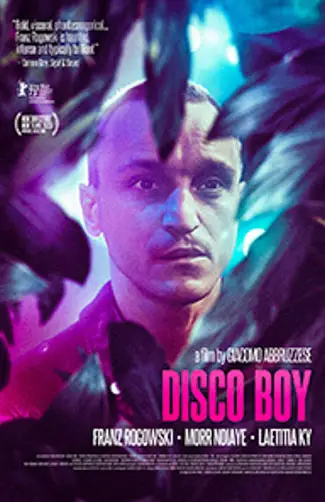
"…wise to mute the film’s most powerful moments..."
